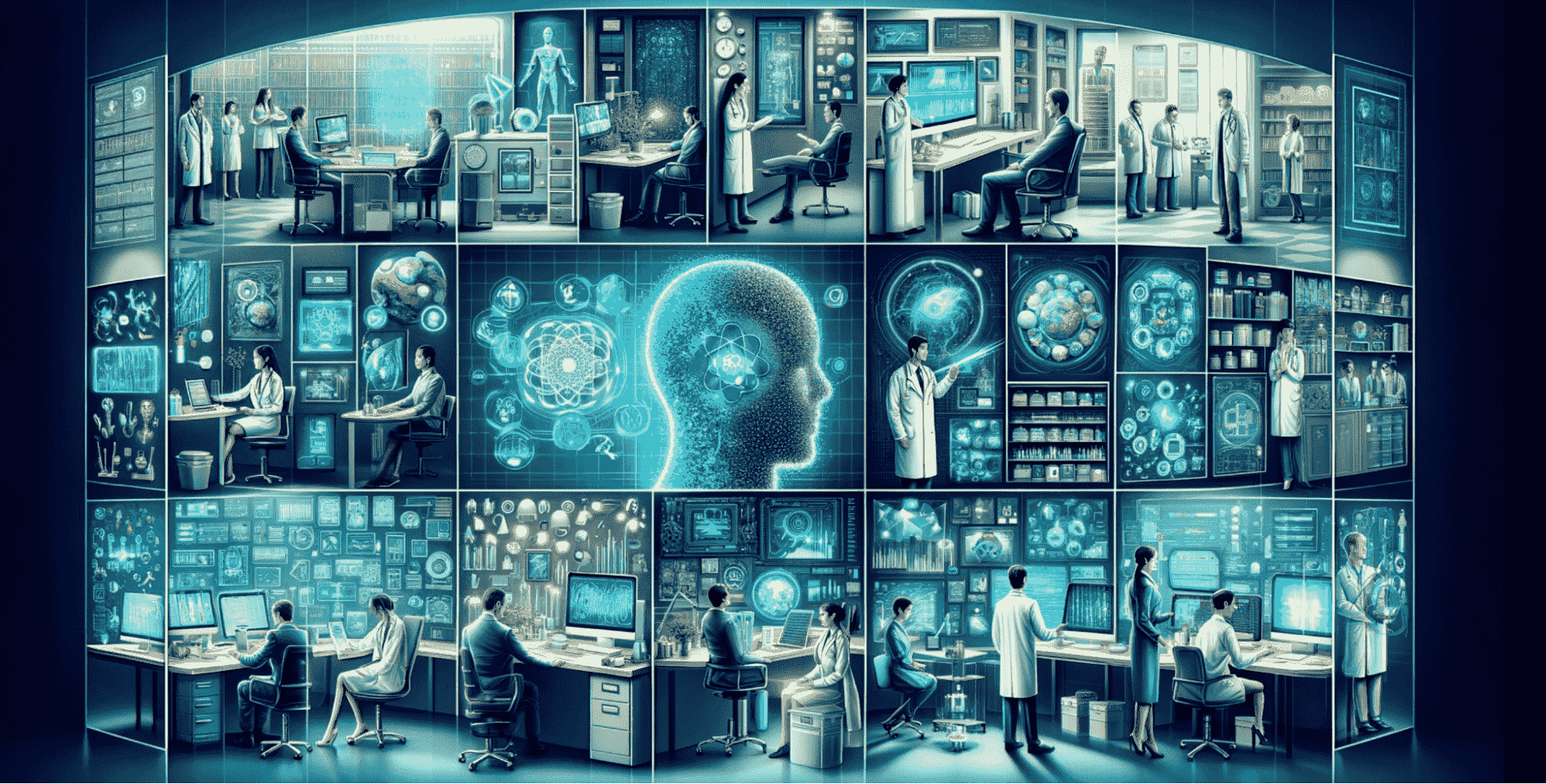Boost the Power of AI with OpenAI’s Custom GPT
Artificial intelligence (AI) has popularised the fear of machines taking our jobs. But what if you could create your own virtual assistant to serve you instead? That future is now here with OpenAI's Custom GPT feature. This tool allows you to create customised AI assistants without any coding and increase your productivity. I explained how you can create your own Custom GPT in another article. In this article, I will explain how you can increase your productivity with custom GPTs with insights from Ozan Ketenci's presentation at Digitalzone'23.

Artificial Intelligence Assistants Made Accessible
In the past, customised AI systems required specialist knowledge and resources. First, you would need to collect extensive training data on the desired area of expertise. Then your data science team would spend weeks building and refining the underlying AI model to create your assistant.
OpenAI has simplified this process. Custom GPT uses the pre-trained capabilities of GPT-4, the most powerful AI language model ever. Users simply write a simple text describing how they want to implement and use this model. OpenAI technology takes on the challenging part of customising the AI to the specified specifications.
Within minutes, you have an AI assistant tailored to your unique needs to meet everyday business challenges.
What can you achieve with special help from a tireless AI brain? Let's explore some apps.

Personalised Unlimited Practices
A "generic" AI bot like ChatGPT has already proven to us that it is good at conversing and responding on a variety of topics. However, when it comes to professional subject matter expertise, one standard does not fit all fields. A "Specialised" GPT trained with legal resources will offer more knowledgeable advice to a lawyer than a "General" bot.

We can say that this is true for almost every industry and speciality, healthcare, retail, finance, engineering, education and more. The critical point here is to load specialised training data into your assistant's knowledge base, which will enable GPT-4 to learn the specifics of the field you are interested in.
Some examples include:
- Marketing assistant optimising campaigns by analysing reports from your advertising platform
- Sales Representative: Recommend best targets by pulling real-time data from CRM
- Customer Support Tool: scanning manuals and documentation to resolve customer requests
- Writing Assistant: Proofread blog posts and check SEO best practices
We can say that these examples are the tip of the iceberg. As the capabilities expand and the data entered increases, we can expect Custom GPT usage to spread to all corporate roles.
Multi-Step Automations with Artificial Intelligence
Question answering is an obvious first practice for AI bots. Need to check edits, analyse campaign metrics or format structured data? Instead of combing through resources yourself, just ask. This alone is a huge improvement over manually searching for answers
However, Custom GPTs can provide much more transformative benefits through automation across multiple services. With OpenAI's Actions framework, you can connect external APIs, browsers, databases, analysis tools and more.
When you bring them together, your assistant can execute entire multi-stage procedures for you end-to-end. Let's say you want to receive search analytics reports from Google, automatically email completed documents to customers every week, and save copies to your cloud storage. This complete sequence can be enabled without any coding required on your part for integration, simply by defining the desired outcome in detail.
The possibilities are endless here. It is obvious that this will really revolutionise the use of artificial intelligence.
Limitations and Growth Area
As with any groundbreaking advancement, the current iteration of Custom GPT has room to mature before realising its full potential. Processing batch and large API responses can sometimes overwhelm these AI assistants today and cause failure. Analysts are working to improve the logic behind assistant recommendations to minimise this.

Still, such growing pains should be expected from the open beta of platforms powering customisable AI. Just as GPT-4 has improved in accuracy and capability over time, customised models will evolve as OpenAI expands infrastructure and training.
For the most complex automations, expert users may still want to use OpenAI's robust Assistant APIs. These offer direct access to write custom functions in Python and other languages as needed. But the beauty of Custom GPT is that it opens up AI expertise to those who can't write code.
Build Your AI-Powered Assistants
We are on the verge of a workplace evolution driven by AI assistants that can elevate any role. These tools can integrate organisational knowledge into every decision, while lifting the burden of monotonous administrative tasks off people's shoulders.
Early adopters of Custom GPT to boost their productivity will gain an advantage over their colleagues who stick to the old ways. Now is the time to try building your own personalised AI tool that aligns with your existing workflows. Start building a simple version today, then continue to evolve it to fulfill more complex tasks over time.
You can read my detailed blog post to take the first step to an AI-empowered workforce.
This content was created by Ahmet Can Kavak, Marketing Manager at Zeo.


















